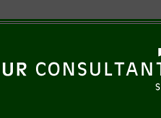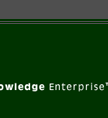 |
 |
 |
 |
 |
 |
 |
|
|
|
|
|
|
|
|
|
|
Case Studies: Is This Your Business? Q: Marketing the invisible: services "Our business is a service, and it's harder to sell something you can't see. We've collected testimonials from satisfied clients, but that is not enough. How do we convince prospects of the benefits or results that will come from our services? How do we market services?" --MarketingProfs.com, Nov. 2004 A: Businesses offering professional services typically provide knowledge. Knowledge and expertise are difficult to sell because it's tough to measure value. Tony Wanless, principal with KnowPreneur Consultants, doesn't believe in using the same methods for selling soap as for selling intangible expertise such as engineering skills or creative abilities: "Most knowledge businesses still use old-fashioned (advertising-oriented) b-school methods that were developed for the manufacturing-sales-distribution world. The result is that marketing of knowledge business often falls flat: It's the wrong methodology for the wrong "product." This rarely works. Instead, offer prospective clients some way to measure value: *Reinforce the "'try before you buy" principle: Give prospects a little free useful advice as a teaser. If they find it worthwhile, they'll come back for more. *Identify the problem: The basis of all services is problem solving. If prospects didn't have problems, they wouldn't be seeking your service. But, often, prospects don't quite know what their problems are. So help them articulate a problem before selling them a service to fix it. *Help establish proper objectives: Many prospects also operate service businesses that often present a business-planning problem. A client who makes widgets knows exactly what her objective is: to make and sell XX number of widgets. But a client who runs another service business often has murkier objectives, such as "make money" or "increase sales." Those are not objectives, they are directions. First, show your prospect how to set proper and achievable objectives. Then piggyback on that with other services. *Commoditize your expertise: Most prospects are used to consumer-style systems or products and are wary of some kind of service where the meter is constantly ticking, but the result isn't very clear. So find some way to make your service into an understandable commodity, i.e., a "30-day plan to improve sales by 30 percent" or "a proven plan to cut your costs by 25 percent." *Use expertise marketing: Your business is all about your expertise and client trust in that expertise, so use viral marketing to market it heavily. Essentially, expertise marketing (commonly used by writers of business books, for example) involves making yourself the recognized and trusted expert in some field.
By
using all these methods at the same time, you will build a critical mass of
trust in the marketplace that lets prospects know you are the go-to firm in
terms of your service specialty." (c) 2004, KnowPreneur Consultants |
|